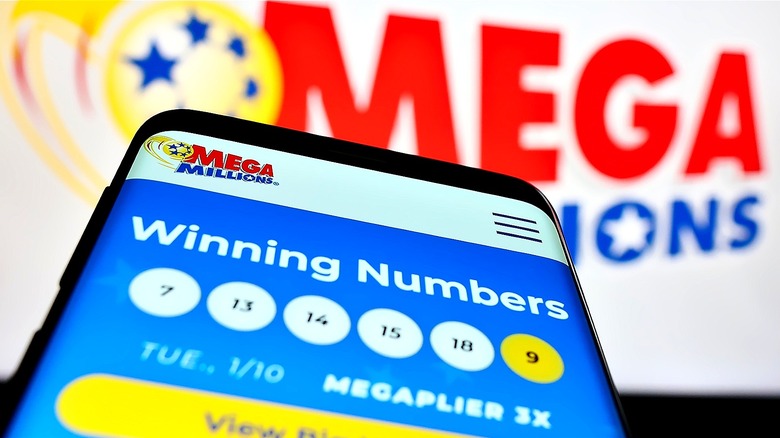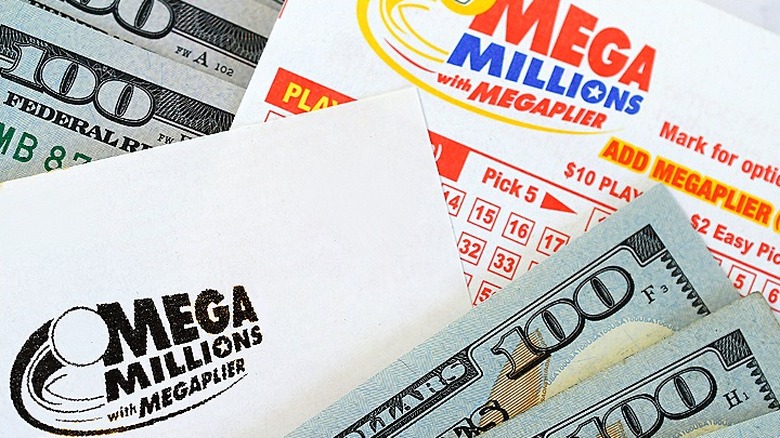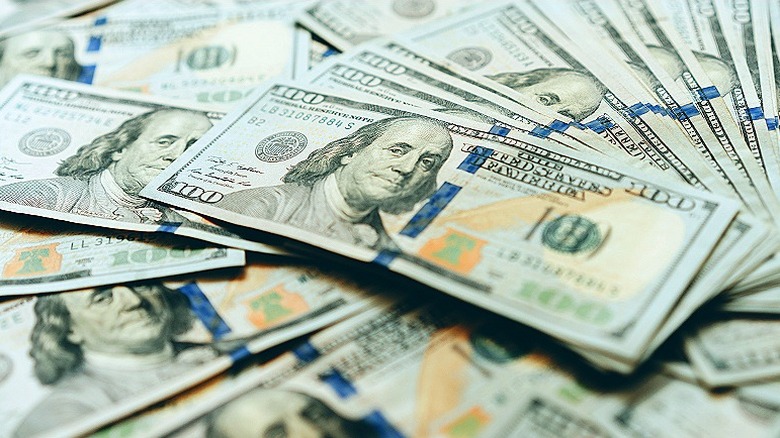What Happens To The Mega Millions Jackpot If No One Claims The Money?
Since 1996, the lives of numerous individuals and families have changed forever after winning big through Mega Millions. After launching in August of that year as the Big Game, with only six states participating, Mega Millions is now played in 45 states (plus Washington D.C. and the U.S. Virgin Islands), and has awarded more than 200 jackpots, six of which totaled at least $1 billion.
It costs $2 to play Mega Millions today, which invites participants to either hand-select six numbers (five white balls ranging from 1-70 and one gold Mega Ball ranging from 1-25) or choose the Easy Pick/Quick Pick option, which automatically generates the numbers. In order to win the lowest prize of $2, only your chosen Mega Ball number must be pulled during the drawing. But to get that coveted jackpot, you have to match all six numbers.
Tickets are purchased at gas stations, grocery stores, and other retailers, with Mega Millions' system able to track when and where a winning one was sold. However, winners' identities are unknown, which means it's up to the players to keep track of drawings (every Tuesday and Friday, at 11 p.m. EST), check to see if they have any matching numbers, and come forward if they do. Yet sometimes, Mega Millions prizes — even massive jackpots — go unclaimed. In this situation, what happens to all of that money? (See if it's better to take a lump sum or an annuity after winning the lottery.)
Unclaimed jackpot prizes benefit participating states
Once a winning set of Mega Millions numbers is drawn, the ticket holder has between 90 days and one year, depending on their state of residence, to claim the prize. If they miss this window, the official Mega Millions FAQ page explains that "each participating state in the Mega Millions game will get back all the money that state contributed to the unclaimed jackpot."
Each state uses this unclaimed jackpot money in different ways. For example, in Illinois, where in 2022, it took two winners nearly two months to claim a $1.3 billion jackpot, prizes that remain unclaimed after one year support K-12 education through the Common School Fund.
Meanwhile, in New Jersey, where a $1.128 billion Mega Millions jackpot had yet to be claimed after six months at the time of this writing, things will look a little differently if no one steps forward. Dan Miller, a spokesperson for Mega Millions, told USA Today, "If the prize goes unclaimed, New Jersey does not keep all $1.1 billion. Most states either revert to a lottery's beneficiary, or beneficiaries, or go back to players through extra prizes and promotions, or some combination of the two." (Find out how much you pay in taxes after winning the lottery.)
Why do lottery prizes go unclaimed?
Since the inception of Mega Millions, a handful of jackpots have gone unclaimed, including $68 million in New York in 2002, and $39 million in Florida in 2023, just to name a few. Still, this is the exception, with most prizes — especially jackpots reaching over $1 billion — eventually claimed, even if it's several weeks or months after the drawing date.
But what causes people to not take advantage of this life-changing opportunity, or delay doing so? Sometimes, life happens, and it's possible that winners forgot about or misplaced their Mega Millions ticket, and therefore have no idea that they won. This is especially true regarding those smaller prizes, which many players don't think to check their tickets for. Brett Jacobson, a lottery expert, told CNN that, each year, billions of dollars in such prizes go unclaimed. "People don't even realize there are secondary prizes," he said.
Other times, it's intentional, especially when a jackpot is involved. The thought of acquiring such an abundance of money can be overwhelming, with many winners strategically taking their time to ensure they're ready for it (and don't end up like these people who won the lottery and ended up dead broke). "Sometimes they're talking with the financial adviser. Sometimes they're trying to develop a plan for what they want to do with the money when they claim it," Dan Miller told USA Today. "Our hope was always that the people who win do come forward and claim their prize, because we obviously want the people who play to win."


